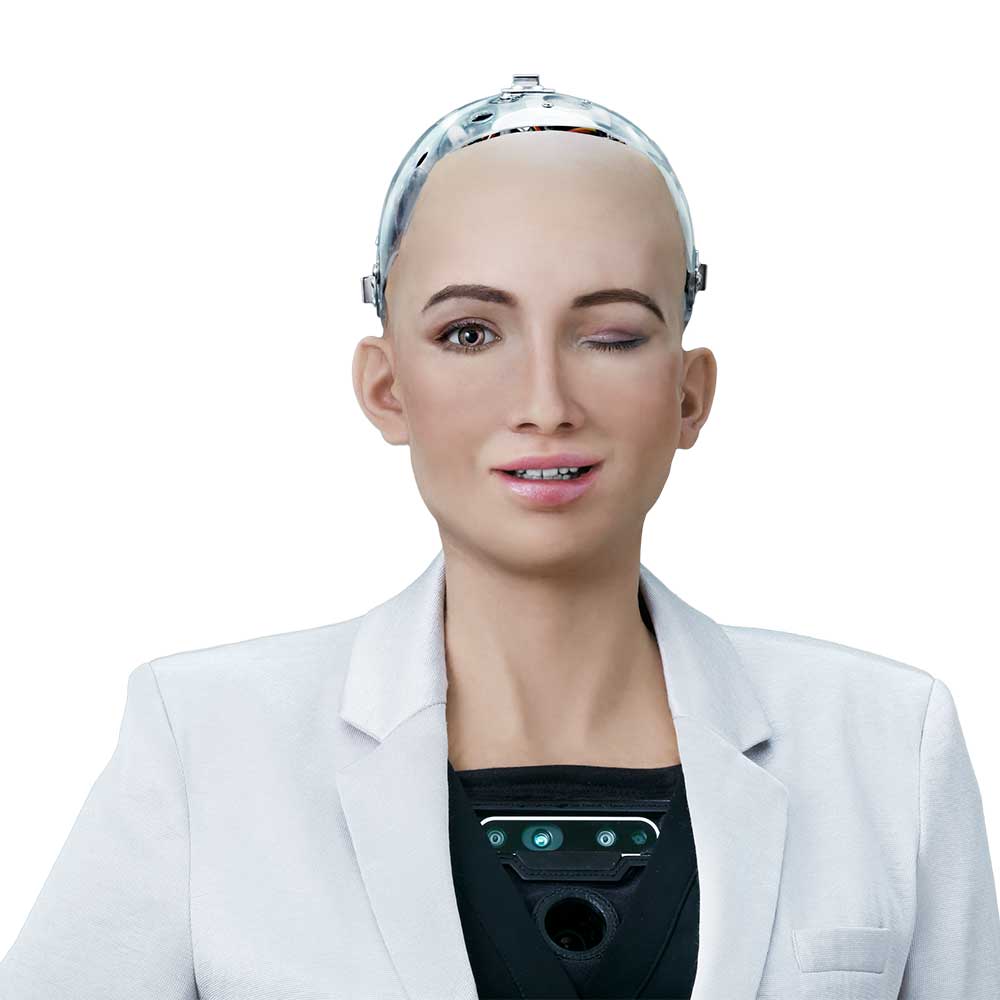
Sophia the Humanoid: A Pioneer in Human-Robot Interaction
By Sophia Chen
Sophia, arguably the most famous humanoid robot of recent times, has been redefining human-robot interaction since her creation. Developed by Hanson Robotics, Sophia combines advanced artificial intelligence with technical sophistication, raising both technical and ethical questions in the realm of humanoid robotics.
Sophia, arguably the most famous humanoid robot of recent times, has been redefining human-robot interaction since her creation. Developed by Hanson Robotics, Sophia combines advanced artificial intelligence with technical sophistication, raising both technical and ethical questions in the realm of humanoid robotics.
Sophia showcases the potential and challenges of integrating robots into human-centered settings. With her lifelike appearance and ability to engage in conversation, she exemplifies how robots might fit into everyday human environments. However, these capabilities also prompt questions about technology's role in human life and the ethical implications of increasingly autonomous machines. Exploring Sophia’s journey provides insights into the future roles of humanoids in society and the crucial engineering behind them.
The Genesis of Sophia
The Genesis of Sophia
Unveiled by Hong Kong-based Hanson Robotics in 2016, Sophia was designed with expressive facial features capable of reflecting nuanced human emotions, thanks to a blend of sophisticated AI systems and innovative engineering. Her design draws inspiration from the human brain's neurological structure, using neural networks and machine learning techniques akin to human cognition.
Sophia’s Impact on AI and Robotics
These technical achievements represent a significant leap in humanoid robotics, aiming not just for functionality but for interactions that are strikingly human-like. Sophia's creators initially envisioned her as a companion for the elderly and a figure in customer service, showcasing the utility of humanoids in facilitating real-world social interactions.
Sophia’s Impact on AI and Robotics
Ethical and Philosophical Considerations
Sophia’s capabilities reflect advancements in AI that rely on vast data processing and interaction learning. Her development team continuously updates her conversational AI based on real-world interactions, allowing her to navigate complex social environments.
Her public appearances have sparked discussions about the potential of artificial intelligence in sectors like healthcare and education, emphasizing the role of robotics beyond industrial automation. By participating in conferences and interviews, Sophia has become both a novelty and a testbed for social interactions between humans and machines.
Technological Advancements and Future Directions
Ethical and Philosophical Considerations
The ethical landscape surrounding Sophia raises profound questions about the definition of personhood and the rights that might be extended to machines. Hanson Robotics fueled these discussions by granting Sophia symbolic citizenship in Saudi Arabia in 2017, igniting a global debate on human-robot coexistence.
By the numbers
- First Public Appearance: March Year 2016, 2016 — Hanson Robotics
- Countries Visited: Over 50 Countries, up to October 2023 — Hanson Robotics
- Language Processing: 9,000 phrases, Real-time updates — Hanson Robotics
What's next
Sophia points towards an exciting yet challenging future for humanoid robots. The next pivotal moment for such technologies will likely be their introduction into new industries and sophisticated, high-stake applications that can further test the limits of AI empathy and adaptability.
> “We are moving from AI that is a tool to AI that collaborates with us in nuanced, indistinguishable fashions.” - Hanson Robotics
Experts have highlighted the need for a balance between innovation and ethical oversight, advocating for regulations to govern AI development and humanoid deployment. These discussions also touch on job displacement and data privacy, as humanoids like Sophia gain the ability to perform tasks traditionally done by humans.
Sources
- Hanson Robotics — Sophia (2023-05-01)
- IEEE Spectrum — How Hanson Robotics Is Using Sophia to Drive Conversations About AI Ethics (2023-01-10)
- Sociable — Sophia the Robot Takes Futurama Stance Against Technology (2023-07-17)
- Scientific American — Sophia the Robot is Causing Debates about the Nature of AI and Rights (2023-06-12)